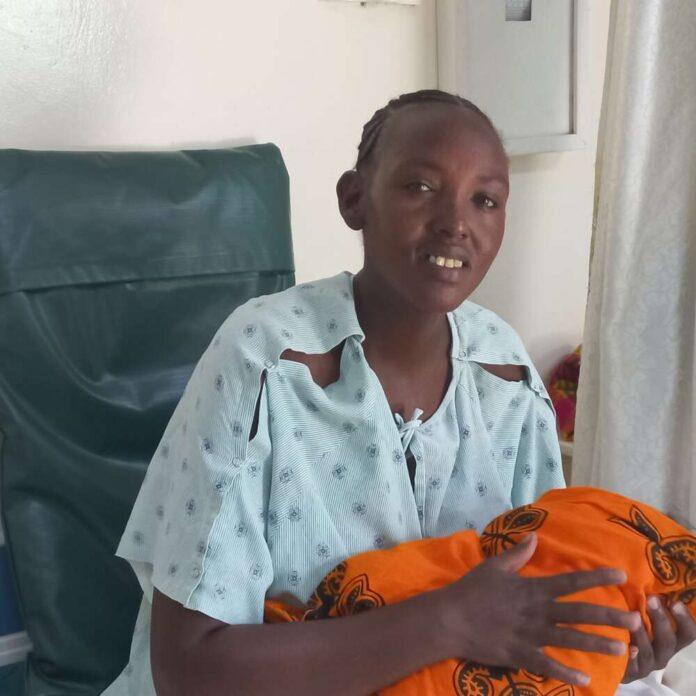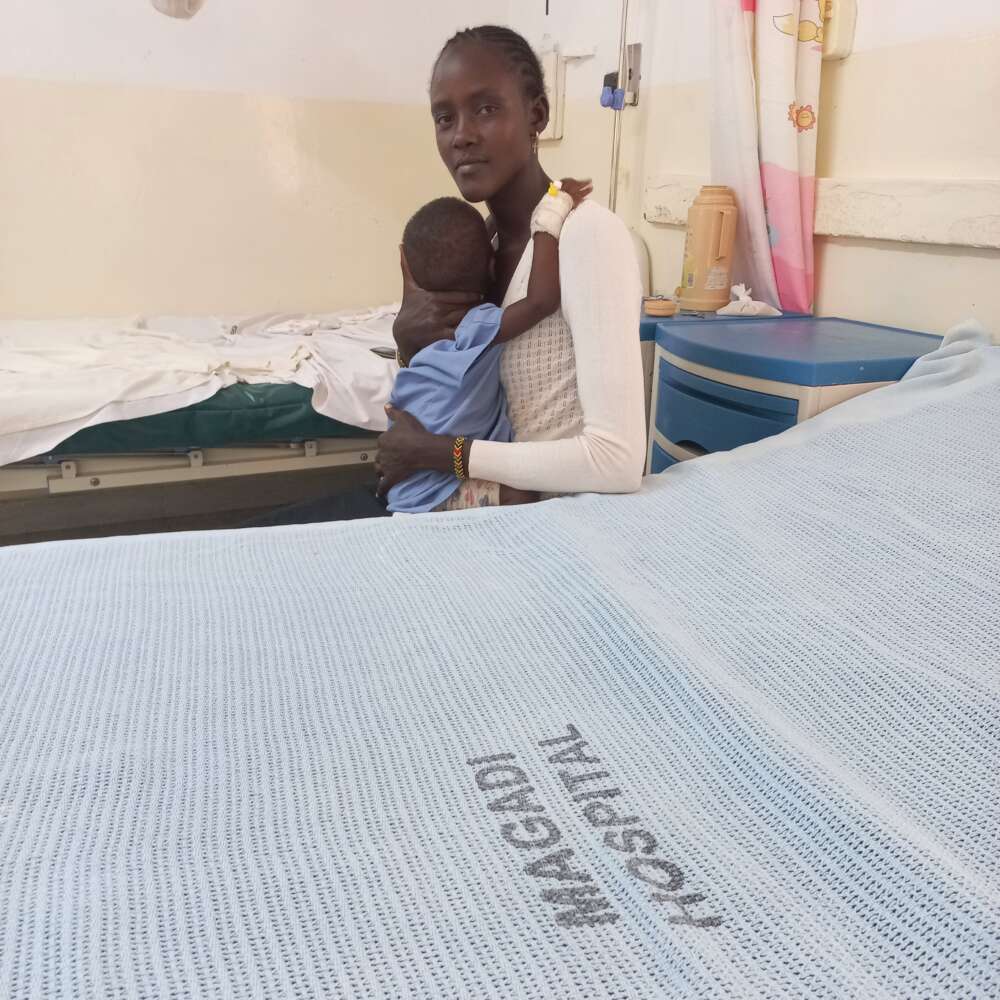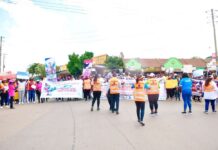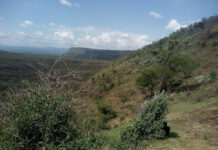
By Christine Wangoi, DevReporter, Kajiado County
Key Highlights
- There is a growing trend in Kajiado, where more women are opting for hospital births over traditional home deliveries.
- This shift is fuelled by increasing concerns about undiagnosed health complications, greater awareness of reproductive health, and government-led free maternity programmes.
- Kajiado has seen a significant improvement, with 85 % of childbirths now conducted by skilled health providers.
“I have just undergone a Caesarian section for my sixth child. I was brought to the hospital by a bodaboda rider, enduring over 10 kilometers ride while in labour. Previously, I had given birth at home without any medical assistance. However, since the launch of Linda Mama, I chose to deliver in a hospital.
“I strongly advocate for hospital births because I experienced complications during this last delivery, and I could only receive the necessary help at a health facility. A traditional birth attendant would not have been able to assist me,” shares Gloria Lemeria from Olkeri, Magadi.
As Lemeria lay in her bed at Magadi Level Four Hospital, tears of joy filled her eyes. Overwhelmed with emotion, she reflected that any delay in reaching the facility could have been fatal for her.
“Life is sacred and given by God, but I believe we have a role in prolonging it. The condition I was in not only endangered my unborn child but my life as well,” she added.
A Growing Trend
Lemeria’s experience highlights a growing trend in Kajiado, where more women are opting for hospital births over traditional home deliveries.
This shift is fuelled by increasing concerns about undiagnosed health complications, greater awareness about reproductive health, and government-led free maternity programmes.
Even men, who once opposed hospital births, are now advocates as family planning and maternal safety become priorities.
“In the past, our fathers and forefathers resisted hospital births to avoid family planning issues. Over time, family size has become a consideration. We are following medical advice regarding family size based on the desired number of children and prevailing health conditions,” says Joseph Tumanka, a resident of Mosiro.
Emerging Lifestyle Diseases
Residents report that undiagnosed high blood pressure and diabetes are among the emerging lifestyle diseases that have become a significant concern.
There has also been an alarming rise in cases of postpartum haemorrhage among pregnant women, attributed to undetected underlying medical issues.
“The free medical camps being held in our villages have been enlightening. We used to think that high blood pressure and diabetes were urban problems, but that is no longer the case,” says Josphine Naanto from Shompole.

Sensitisation Initiatives
Recently, Kajiado County, along with the national government and non-state actors, has conducted sensitisation initiatives to address the knowledge gap in reproductive health.
Women are encouraged to choose hospital births. The county government is actively profiling traditional birth attendants to aid in identifying pregnant women in remote areas.
Health officials monitor women visiting traditional birth attendants for antenatal care. These attendants, now commonly referred to as birth companions, receive attractive stipends to motivate pregnant women to seek care at health facilities during childbirth.
In addition, pregnant women are provided with gifts, including free clothing and nutritious food for up to six months. This sensitisation effort has also been crucial in dispelling misconceptions about compulsory Caesarian sections.
“Some women still hesitate to embrace hospital births. Deep-rooted cultural misconceptions require on-going sensitisation, as cultural challenges cannot be addressed overnight,” Naanto added.
Free Maternity Services
“The introduction of Linda Mama Maternity Services has been invaluable. Previously, I could not afford the required maternity fee. This is a project that the current government should prioritise and maintain. It is lifesaving,” says Jane Naisula, a resident of Nkinye, Kajiado Central.
The Kenya Demographic Health Survey (KDHS) 2022 revealed that there were at least 355 deaths per 10,000 live births. Kajiado has seen a significant improvement, with 85 per cent of childbirths now conducted by skilled health providers.
According to the county ministry of health, 70 maternal deaths were reported in 2023, with postpartum haemorrhage (PPH) accounting for 12 of those cases.
To combat the life-threatening issue of PPH, hospitals in Kajiado have implemented an innovative technology—the Non-Pneumatic Anti-Shock Garment (NASG). This specially designed garment stabilises a bleeding mother for up to 48 hours, thus providing critical time for doctors to arrange emergency medical care.
Mr. Alex Kilowua, the County Executive Committee member in charge of health services in Kajiado, noted that a recent donation of 60 NASG units has been distributed to remote areas, along with training for healthcare workers on their proper use.
“Twelve mothers lost their lives due to PPH, which is alarming. More deaths could have occurred if these mothers had chosen home births. Fortunately, at least 37 mothers with this condition were saved through emergency medical attention. We have distributed 60 NASG units to the most remote parts of the county”, said Alex Kilowa.
“We are also pleased that health workers received training on how to use the garments. Given the vast distances in our region, this will allow enough time for medics to organise emergency ambulance services to save mothers and seek specialised care,” Kilowua added.
The construction of manyattas within health facilities has also attracted illiterate women. In the past, these women have criticised the hospital environment for being unfriendly, citing unpleasant hospital odours and cold temperatures. Now, they find the manyattas to be a more comfortable alternative.
Poor infrastructure and insufficient health facilities have hindered access to standard reproductive health care, as guaranteed by the Kenya constitution 2010 under Article 43 of the Bill of Rights.
Public health facilities in Kajiado include seven level four hospitals, 101 dispensaries, and 23 health centres.
Records from Magadi level four hospital, which serves the most remote areas of Kajiado West Constituency, indicate that an average of 125 women give birth at the facility each month.
Kajiado has made significant progress in enhancing maternal healthcare, but challenges persist.
To achieve Universal Health Coverage (UHC) 2030 target, increased investment is necessary in rural healthcare infrastructure, emergency transport, and community awareness programmes.
Collaboration among health officials, policymakers, and traditional birth attendants is essential to ensure that no mother is disadvantaged by distance, misinformation, or lack of access.
On-going efforts in education, resource allocation, and community engagement will be crucial in making hospital births the standard throughout the county.





